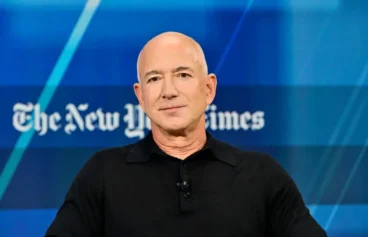After restricting transactions for GameStop and AMC stock, which retail investors sent soaring this week, Robinhood is facing a class action lawsuit and immense criticism from the public.
Filed Thursday, Jan. 28, in the Southern District Court of New York, the suit alleges Robinhood “purposefully, willfully, and knowingly removing the stock ‘GME’ [GameStop] from its trading platform in the midst of an unprecedented stock rise thereby deprived retail investors of the ability to invest in the open-market and manipulating the open-market.”
“We continuously monitor the markets and make changes where necessary. In light of recent volatility, we are restricting transactions for certain securities to position closing only, including $AAL, $AMC, $BB, $BBBY, $CTRM, $EXPR, $GME, $KOSS, $NAKD, $NOK, $SNDL, $TR, and $TRVG. We also raised margin requirements for certain securities,” Robinhood said in a statement on its blog.
Many have complained that with the move Robinhood is doing opposite of its promise to “democratize financing for all.” Rapper Ja Rule is among the critics. He encouraged retail investors to hold on to their stocks.
“Yo this is a f—ing CRIME what @RobinhoodApp is doing DO NOT SELL!!! HOLD THE LINE… WTF,” Ja Rule tweeted Thursday morning.
Robinhood’s decision to restrict certain stocks came after a Reddit community, r/WallStreetBets, started a movement to drive up GameStop’s stock on social media. As a result, the stock jumped from $17.25 per share at the beginning of the year to $159.18 on Monday, Jan. 25 – an 822 percent increase.
Then billionaire Elon Musk tweeted about GameStop and it rose even higher to close at $347.51 per share on Wednesday, Jan. 27, CNET reported.
The group then encouraged retail investors to target other companies like AMC, Blackberry, etc. AMC ended up jumping from $2 per share to $19.90 by Wednesday evening’s market close after the #SaveAMC hashtag went viral on social media.
Seasoned Wall Street investors have collectively lost billions as a result of the stock spikes and accused retail investors of market manipulation. Short selling is why many Wall Street veterans recorded big losses in the surge.
When someone makes a short sell, they bet against a stock by borrowing shares and selling them with they believe the stock price will eventually fall and they can net a profit by buying back the stocks for repayment at a lower price. If that doesn’t happen — and the stock rises instead as GameStop did — short sellers then have to purchase the stocks at a higher price to repay them, thus losing money.
The r/WallStreetBets community, realizing some months ago that GameStop was one of the most shorted stocks listed across several exchanges, began a concerted effort to thwart the hedge funds and other deep-pocketed investors who were betting the stock would fall. The community members began urging small-time retail and online investors to buy the stock and drive the price up, imposing a “short squeeze” on the big investors that forced them to buy back the stock at higher prices — driving the price up even more — and by Thursday already had cost one hedge fund $2 billion.
Due to the lamenting of institutional investors and the frenzy taking place on the market, Robinhood was joined by other trading platforms in restricting the hot stocks.
The Wall Street Journal and other outlets reported that Interactive Brokers Group and Webull Financial also restricted trading to “high-flying stocks.”
“We do not believe this situation will subside until the exchanges and regulators halt or put certain symbols into liquidation only,” Interactive Brokers tweeted Thursday. “We will continue to monitor market conditions and may add or remove symbols as may be warranted.”
Webull followed suit, tweeting, “Due to the extreme volatility in the symbols AMC, GME, and KOSS, our clearing firm will no longer be able to support clearance on these symbols. As a result, Webull is forced to set all transactions in these symbols to liquidate only.”
New York Rep. Alexandria Ocasio-Cortez and billionaire Mark Cuban joined Ja Rule and other critics in decrying restrictions on trading the stocks.
“We now need to know more about @RobinhoodApp’s decision to block retail investors from purchasing stock while hedge funds are freely able to trade the stock as they see fit,” Ocasio-Cortez tweeted.
“So are @robinhoodapp and @IBKR ending trading in #wallstreetbets stocks because they are losing their a– on these trades? Or maybe they dont (sic) have the cash to enable the trades at this scale? Anyone have any insight on their economics?” Cuban tweeted.
Ja Rule later explained why he told retail investors to hold the line on their stocks despite restrictions.
“They hedge fund guy shorted these stocks now we can’t buy them ppl start selling out of fear… we lose money they make money on the short… THIS IS A F—ING CRIME!!!” Ja Rule wrote.
Both Ja Rule and Cuban celebrated retail investors for their prowess in competing with big-time investors on Wall Street.
“Haha you gotta love social media,” Ja Rule tweeted. “I got to say I LOVE LOVE what is going on with #wallstreetbets. All of those years of High Frequency Traders front running retail traders, now speed and density of information and retail trading is giving the little guy an edge. Even my 11 yr old traded w them and made $,” Cuban tweeted Wednesday night.
After the immense public outcry, Webull changed its tune by Thursday afternoon, tweeting “GME, AMC, and KOSS are no longer restricted.”
Robinhood and Interactive Brokers were still restricted at the time of this writing.


